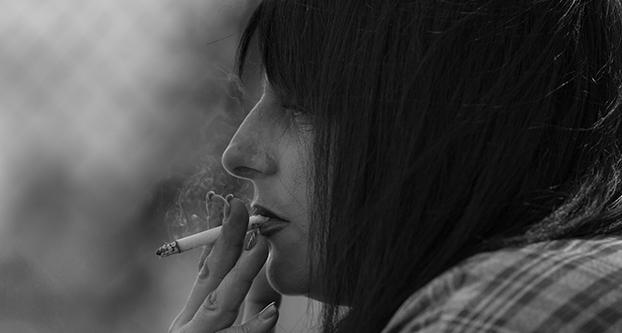Myles Barker and Manuel Gutierrez/Special to The Collegian
Paula Gillespie, whose real name is being kept confidential to protect her privacy, 41, had everything going for her in her mid-20s.
She had just graduated from Fresno City College, landed a job as a home-health nurse, got married to the love of her life, bought a new house and a new car.
Then things started to take a turn for the worse.
After a traumatic pregnancy kept her in labor for 30 days at a hospital — she was pregnant with quadruplets — only two survived.
Several months later, Gillespie, who is of Egyptian descent, found herself struggling to keep up with her new hectic life, which also included two more kids from her husband’s previous relationship. She knew she needed a little help, but the Starbucks and Red Bulls she’d been drinking religiously didn’t seem to help.
When a foreman she had called to her house to fix a light switch offered her something he said would do the trick, she took it without hesitation.
That something was crank, a slang term for methamphetamine, and Gillespie became instantly addicted.
“I was just ignorant and naive,” said Gillespie, who was 26 years old at the time. “But I was also beat and tired from having twins, two stepchildren, a new house, a new job, laundry, dinner, dishes, homework and all that kind of stuff.”
Gillespie initially thought she would just use the meth to help her get her life situated, but it was already too late. The damage had been done.
“I didn’t think I would become addicted to it,” Gillespie said. “I thought I could just use it now and again and maybe do a line every once in a while just to stay awake and do what I had to do. I thought that I had it under control.”
It wasn’t long before Gillespie left her husband, her kids and her life that she had worked so hard to get. Six months after the foreman introduced her to meth, Gillespie was living on the streets with drug dealers doing anything she could to get high.
To support her habit Gillespie found herself selling her things, including her motorcycle, stealing jewelry from her parents and begging for money from her husband.
When none of those options worked, Gillespie felt she had no choice but to hit up a Motel 6 and sleep with anyone who had her next fix.
“I would do whatever I had to do to get high back then,” said Gillespie, who has now been a meth addict for 15 years. “I thought the meth would make me better, and it didn’t. It took me down real, real fast.”
Growing up in a middle-class family with her father being a real estate agent and her mother a librarian, Gillespie knew she was a huge disappointment. Abandoning her family, especially her two daughters, made her feel even more ashamed.
“Once I left my husband and my kids, it was like I didn’t want to feel that guilt,” Gillespie said. “So the more guilt I felt, the more drugs I would do to numb myself. And the more drugs I did, the more guilt I would feel for doing the drugs. And it was like a perpetuating cycle that just kept going, going and going.”
Surprised and worried, Gillespie’s husband and parents spent days driving all over Fresno looking for her, only adding to her already guilty state of mind.
She only hinted at the notion of getting clean after having an accidental pregnancy, but it wasn’t until three to four months into her pregnancy that she stopped her meth use.
“When I found out that my baby was going to be OK, and that his brain was developing OK, and he had all his fingers and toes, I stopped doing drugs and I was clean for four years,” Gillespie said.
With a new job and getting remarried, Gillespie was ready to start her life over again, but just when things were starting to look good, she had a bad day at work and suddenly felt the urge to use again. She eventually relapsed.
“I relapsed after four years of being clean, and it made me feel like shit,” Gillespie said. “It was a dirty feeling.”
Dirty not because she had went back to her old ways, but because this time her new husband found her stash and threatened to leave her.
“I kind of had it under control, and I thought I was OK because I was still holding a job, still a productive member of society. I was just doing meth,” Gillespie said. “I said that this is what I need to make me feel good every day, and that I can’t function without it.”
Determined not to let her husband down, Gillespie agreed to go to rehab and has been clean for several weeks.
“I know that if I ever test positive he will leave, and I feel bad, but I am not going to let the guilt run me anymore, I’m not letting it run me anymore,” Gillespie said. “I have a lot of anxiety because it is hard when you become dependent on something and then it is gone. It’s like if you have a close relationship with your parents and all of a sudden they are gone, it is hard to deal with, but I know I’ll figure it out.”
Part 2 will run April 27.




